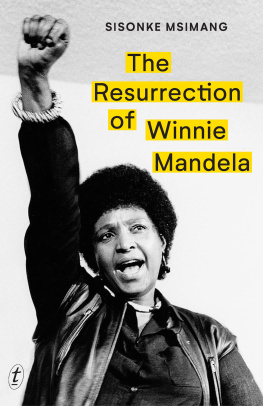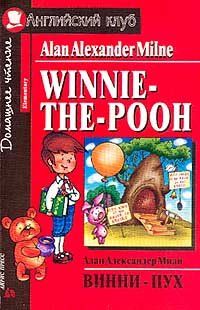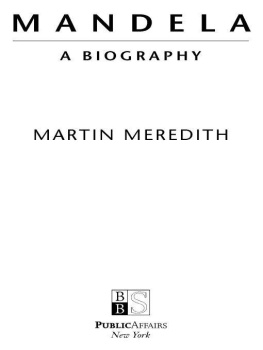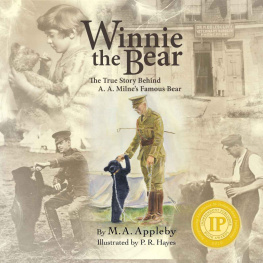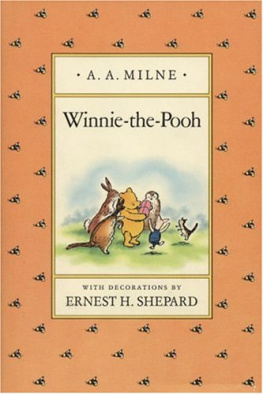

The Resurrection of Winnie Mandela charts the rise and falland rise, againof one of South Africas most controversial political figures.
Ma Winnie fought apartheid with uncommon ferocity, but her implication in kidnapping, torture and killingsincluding the murder of 14-year-old Stompie Seipeiwould later see her shunned.
Sisonke Msimang argues that this complicated woman was not witch but warrior: that her violence, like that of the men she fought alongside, was a function of her political views rather than a descent into madness. In resurrecting Ma Winnie, Msimang asks what it means to reclaim this powerful woman as an icon while honouring apartheids victimsthose who were collateral damage and whose stories have yet to be told.
To Angela and Stan and Wallythe stalwarts.
I was not going to bask
in his shadow and be known as Mandelas wife.
Winnie Mandela
Like many migrants, I live a bifurcated existence. Perth is six hours ahead of my home country, South Africa, so one eye is always on the clock as I try to figure out if anyone will be awake yet in Johannesburg for a quick chat. If you look at my Twitter timeline, you can tell how homesick Im feelingwhen Im low, I immerse myself in South African politics. Im constantly online, making jokes and trading memes only a South African could understand and ranting about people too far away to make any difference to my life.
I miss the drama of South African politics, the life-and-death nature of it all. In Australia the prime minister might change frequently, but the democratic system has a built-in stability. Politicians are a distraction here, often an unwelcome irritation. In South Africa, on the other hand, our leaders have the power to hurt uswere wounded by their betrayals. The difference is visceral. Because of our history, we dont know how to do politics any other wayits a national obsession.
In early April 2018, I was scrolling through Twitter, catching up on the news of the day, feeling lonesome and far away from home, when I saw it: #RIPWinnieMandela. It was hashtagged, which meant it was not a rumour: the hashtag is the online worlds version of a confirmed report.
It was fitting that I would hear the news this wayon social media. Winnie Mandela was a profoundly modern woman. Her defiance and rage, her beauty and radical chic, her cool and cutting humour made her an icon to generations of South Africans. One of the fiercest critics of the apartheid regime, she led her people in a struggle for justice. She was the mother of our nation, her name and face known across the country. Her achievements are all the more significant when you are aware of where she came from. She was born into a complicated and violent history. Her family was poor. She should not have made it out of the village, let alone to Johannesburgand yet she was for many years perhaps one of the most recognisable African women in the world.
In the week that followed her death, Nelson Mandela dominated every column written about her. In death, as in life, he loomed larger than herbut there was more at play than his incredible fame. The South African media characterised Winnie as a murderous thug. They referred to her as the mugger of the nation, and Nelson as a saint. Much of the international coverage focused on her marriage to Mandela and the scandals that had marked her middle age. There was only passing mention of the part she had played in the struggle for liberation, and only fleeting reference to the terrible sacrifices she had made. Her contribution seemed to have been forgotten.
The erasure of Winnie Mandela felt all too familiar. Women are written out of history all the time. And yet I had grown up knowing that she was a force. I had witnessed the respect she commanded, not just as Nelson Mandelas wife but as a formidable speaker and freedom fighter in her own right.
A spontaneous counter-campaign sprang up in response. Younger women wrote Ma Winnie a new song, raising their voices in respectfulin some instances even reverentialhomages to her life. I was one of many feminists who had come of age in the post-apartheid era who added their voices to the chorus. We argued for her to be treated with more respect and pushed for her story to be told in all its complexity and power.
She had meant so much to South African women, her experiences, her hurts and grievances echoing our own. Like so many others, she was denied a life with the man she loved. Her husband was in prison, not down the mines or working abroad, but when women saw her photos or heard her speak at rallies, they knew she understood how it felt to be alone. Like them, Winnie had to live apart from her children, too. She knew the pain of the millions of black South African women who were domestic workers in white peoples homes and had to leave their children with relatives in rural areas.
Winnie was every woman. This was why her articulate rage, her belligerence and her persistence were so potent. She found a way to voice all the anger South African women felt. When she pushed a police officer, or lashed out sarcastically at the prime minister, she was doing so on our behalf. She spoke to white men in authority the way others wanted to but couldnt, for fear of losing their jobs, getting beaten or arrested. Winnie said what she wanted and suffered the consequences, but she remained unbowed. Oftenbecause of her public statureshe got away with things that would have earned anyone else a harsh rebuke.
We adored her for having the guts to do what we could not do, to say the things we could not say. We cheered when she said, I am a living symbol of whatever is happening in the country. I am a living symbol of the white mans fear. This is why she became such a powerful symbol of resistance for black women across South Africa, and ultimately black women across the African diaspora.
Many of the new generation of more radical men saw Winnie as an icon too. She did radical well, dressing the part, her fist always in the air. There are countless clips on YouTube of Winnie Mandela giving the black power sign. Shed roar Amandla! at the crowdPower!and listen with satisfaction as the crowd roared back Awethu!Its ours! She was fearless, and she made others forget their fears too, inspiring insurrection. Right after her husband was sent to prison, Winnie was quoted in the media saying, They think because they have put my husband on an island that he will be forgotten. They are wrong. The harder they try to silence him, the louder I will become. She had been loud, and so when she needed us to defend her we were loud too, singing her praises.
I cannot pretend otherwise: I am interested in redeeming Ma Winnie. But acknowledging her role in the fight for freedom, and the violence done to her, is impossible without acknowledging her own violence against othersthe kidnappings, beatings and murders carried out on her orders. This book is an attempt to grapple with her complexity, to write into her contradictions rather than shy away from them. This is a generosity seldom accorded women. Women are supposed to be neat and clean and yet Winnies story is messy and not straightforward. She heals and she wounds; she is staunchly loyal and yet she is an adulterer. Much like the country for which she fought, Winnie was both dazzling and confounding.
When the world relegates her to her ex-husbands shadow, it is also relegating South African womens stories to the nations shadows. When it denies her story, it denies the stories of countless women. I want to bring her back into view, and in so doing, I want to bring us all back into the picture, to tell a bigger, richer and far more inclusive story. In the end, I dont care whether you love her or hate her, but I want you to know that she lived and she foughtthat Winnie Madikizela-Mandela was here.
Next page
